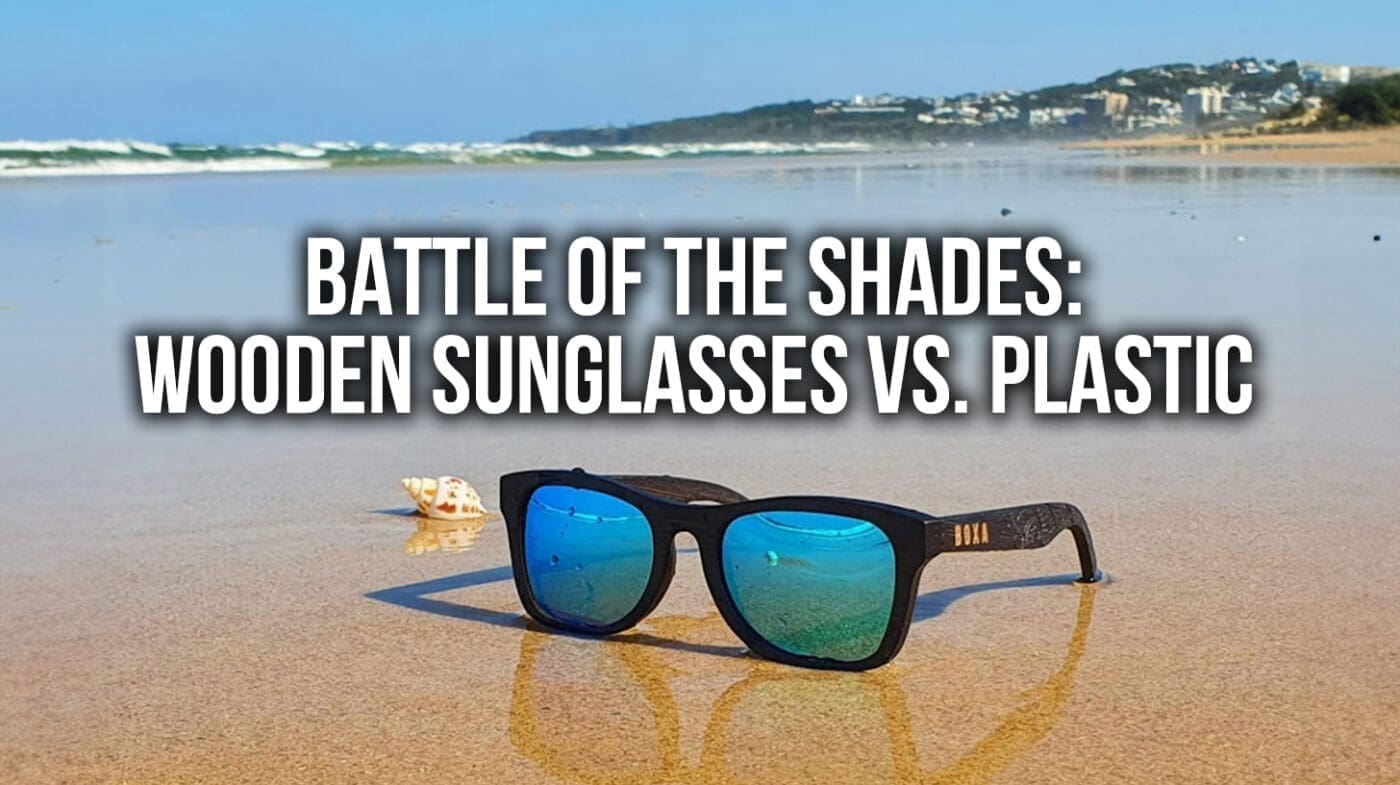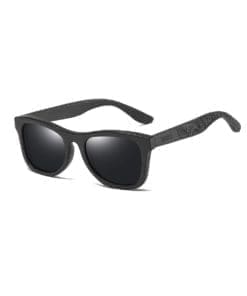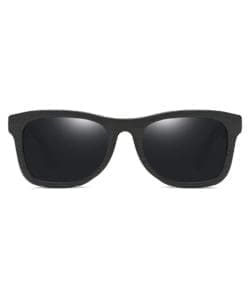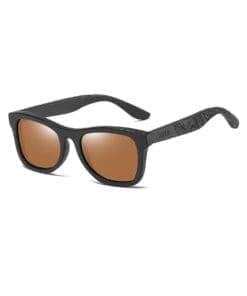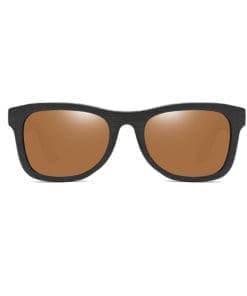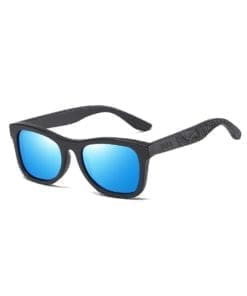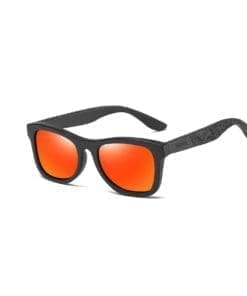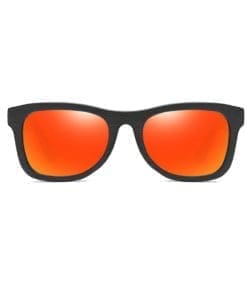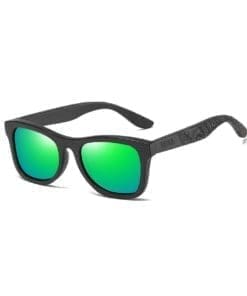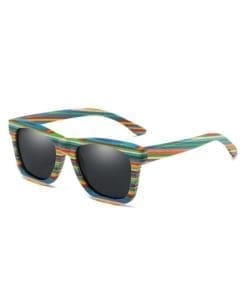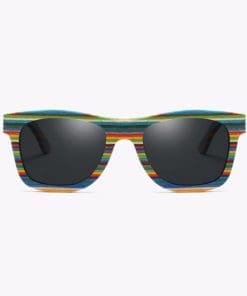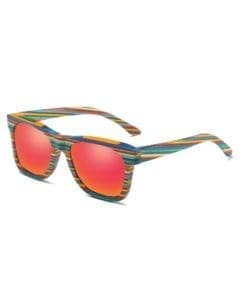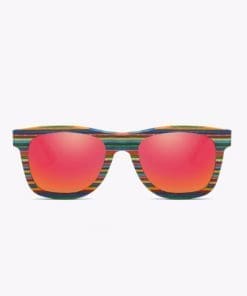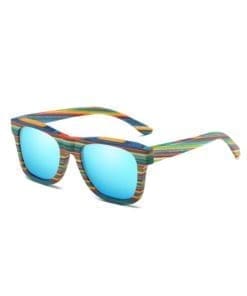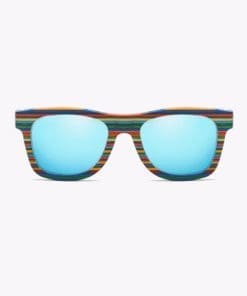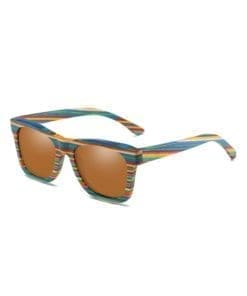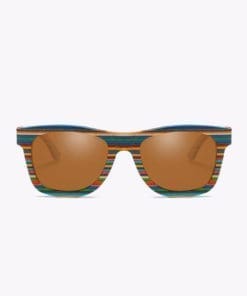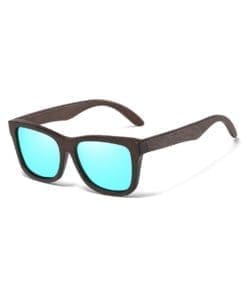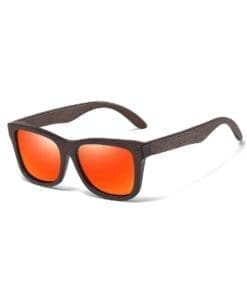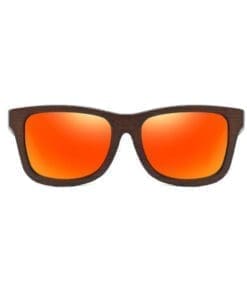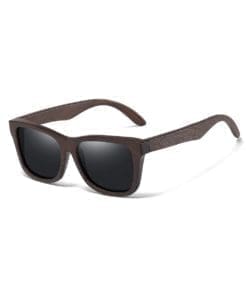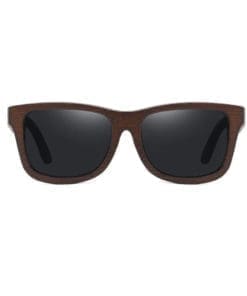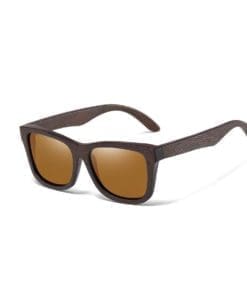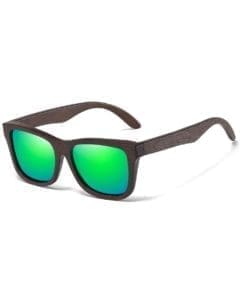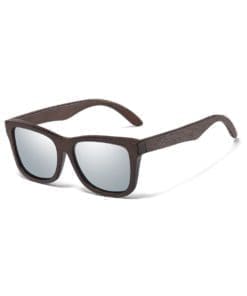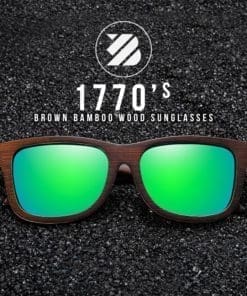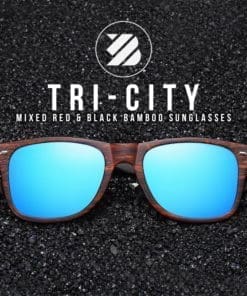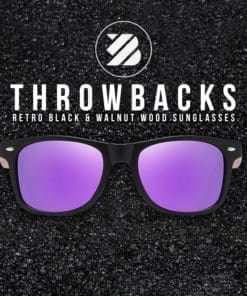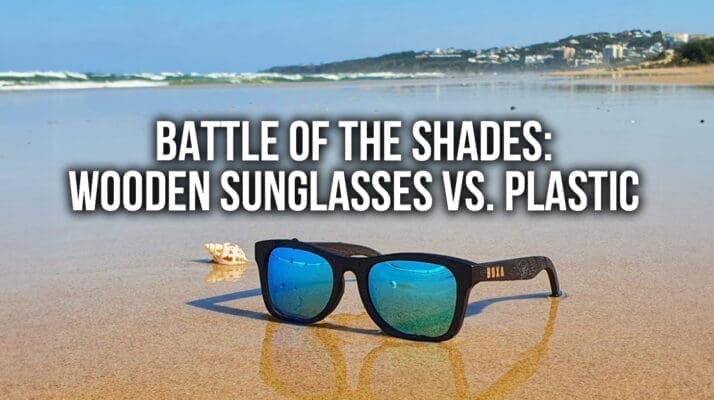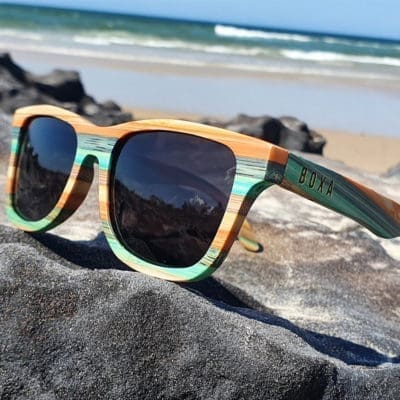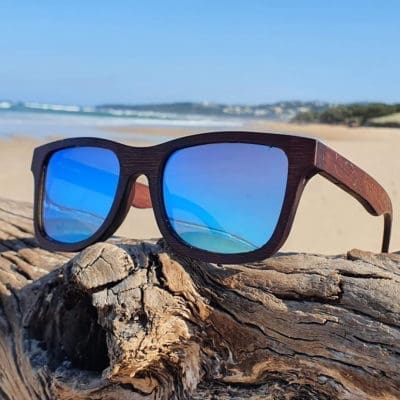Wood Sunglasses
Battle of the Shades – Wooden Sunglasses vs. Plastic
Battle of the Shades: Wooden Sunglasses vs. Plastic and Metal
In the ever-evolving world of fashion and function, sunglasses are a staple. However, not all shades are created equal. The materials used in crafting sunglasses—wood, plastic, and metal—each bring their own set of advantages and drawbacks. In this impartial comparison, we’ll explore the durability, style, and environmental impact of these materials, shedding light on how they fare against each other. And yes, some of our favorite BOXA products will make guest appearances.
Durability: Built to Last or Built to Fade?
Wooden Sunglasses: Nature’s Resilience
Wooden sunglasses, such as the BOXA Airlie’s Brown & Dark Bamboo Wood Sunglasses, offer the perfect blend of comfort and sturdiness. Their layered wooden construction provides a robust frame that’s also lightweight, reducing the pressure on your nose and ears. Wood types like bamboo are known for their impressive tensile strength, offering durability that can stand up to daily wear and tear.
Plastic Sunglasses: The Question of Quality
While plastic sunglasses are ubiquitous, their durability can be hit or miss. Cheap plastic shades can break or crack easily, while higher-quality versions offer more robustness. However, plastic can weaken over time, especially when frequently exposed to sunlight and high temperatures.
Metal Sunglasses: Industrial Strength
Metal frames, often made of aluminum or titanium, offer extreme durability. They can withstand accidental drops and can be adjusted without breaking. However, they can be quite heavy, causing discomfort during extended wear.
Winner: Metal, followed closely by wood.
Black Knight Lens
Airlie – Dark Bamboo Wood Sunglasses With Dark Knight Polarized Lens
Black Sunglasses
Airlie – Dark Bamboo Wood Sunglasses With Ocean Blue Polarized Lens
BOXA Airlie’s Bamboo Wood Sunglasses
Airlie – Dark Bamboo Wood Sunglasses With Sunset Orange Polarized Lens
BOXA Airlie’s Bamboo Wood Sunglasses
Airlie – Dark Bamboo Wood Sunglasses With Turtle Green Polarized Lens
Style: The Aesthetics of Eye Protection
Wooden Sunglasses: A Symphony of Natural Elements
When it comes to style, wooden sunglasses like the Neverlands – Rainbow Wood Sunglasses bring a unique aesthetic to the table. These sunglasses feature layered rainbow wood, ensuring each pair has its own distinct striations, thereby offering a one-of-a-kind fashion statement. They blend classic and contemporary design elements, making them versatile for virtually any occasion.
Plastic Sunglasses: Fast-Fashion Meets Eye-Wear
Plastic sunglasses offer a wide variety of styles and colors, from the iconic Wayfarer to bold and futuristic shapes. However, they can sometimes come off as cheap or disposable, especially if they’re on the lower end of the price spectrum.
Metal Sunglasses: Sleek but Standard
Metal sunglasses often exude a sleek, industrial look that’s generally associated with aviator or rounded styles. While they are undeniably stylish, they can be somewhat limited in terms of originality and versatility.
Winner: Wood for uniqueness and versatility.
Black Knight Lens
Neverlands – Rainbow Wood Sunglasses Dark Knight Polarized Lens
BOXA Neverlands Wooden Sunglasses
Neverlands – Rainbow Wood Sunglasses Orange Sunset Polarized Lens
Blue Sunglasses
Neverlands – Rainbow Wood Sunglasses Ocean Blue Polarized Lens
BOXA Neverlands Wooden Sunglasses
Neverlands – Rainbow Wood Sunglasses Coffee Brown Polarized Lens
Eco-Footprint: Weighing the Impact
Wooden Sunglasses: The Eco-Warrior
Wooden frames like the BOXA 1770’s Brown Bamboo Wood Sunglasses make a strong eco-statement. Bamboo grows 20 times faster than most trees, making it a renewable resource. Furthermore, the production process of wooden frames usually involves fewer chemicals and toxic materials, giving them a significantly smaller carbon footprint.
Plastic Sunglasses: The Eco-Offender
The environmental impact of plastic sunglasses is quite unfavorable. Plastic production emits a large amount of greenhouse gases and the material is often non-biodegradable, leading to long-lasting waste. Even recycling doesn’t fully mitigate the environmental damage due to the energy-intensive process.
Metal Sunglasses: The Mixed Bag
Metal frames have a less harmful impact compared to plastic but aren’t as eco-friendly as wood. The mining of metals like aluminum has environmental consequences, although many metal frames are made of recycled materials.
Winner: Wood, by a substantial margin.
BOXA 1770's Wooden Sunglasses
1770 – Brown Bamboo Wood Sunglasses With Orange Sunset Polarized Lens
Black Knight Lens
1770 – Brown Bamboo Wood Sunglasses With Dark Knight Polarized Lens
BOXA 1770's Wooden Sunglasses
1770 – Brown Bamboo Wood SunglassesWith Coffee Brown Polarized Lens
BOXA 1770's Wooden Sunglasses
1770 – Brown Bamboo Wood Sunglasses With Turtle Green Polarized Lens
BOXA 1770's Wooden Sunglasses
1770 – Brown Bamboo Wood Sunglasses With Sliver Polarized Lens
The Final Verdict
When you stack them up against each other, it becomes clear that wooden sunglasses offer a unique combination of durability, style, and eco-friendliness. While metal frames might win in the durability department and plastic offers an array of styles, wooden sunglasses like the BOXA Airlie’s Bamboo Wood Sunglasses with Sunset Orange Polarized Lenses provide a holistic package that few can match.
Wooden sunglasses blend the best of both worlds, offering long-lasting wear and unparalleled originality, all while being gentle on Mother Earth. So, the next time you’re in the market for a pair of shades, consider what each material brings to the table. You might just find that wooden eyewear is the comprehensive choice you never knew you needed.


